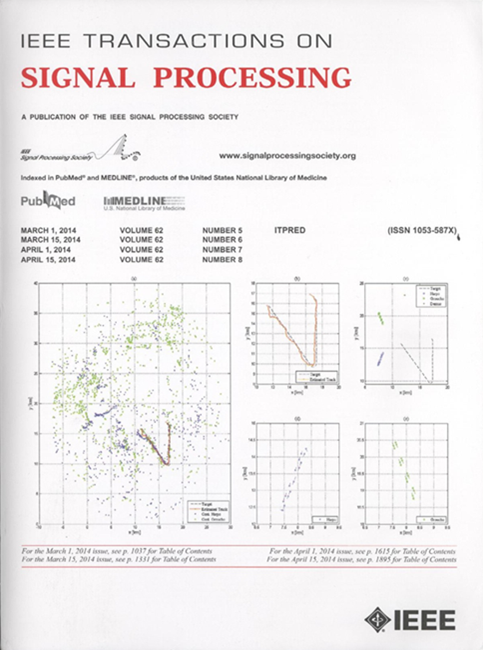无线网络联合学习的自适应模型剪枝和个性化设计
IF 4.6
2区 工程技术
Q1 ENGINEERING, ELECTRICAL & ELECTRONIC
引用次数: 0
摘要
联盟学习(FL)可以在保护数据隐私的同时实现边缘设备间的分布式学习。然而,由于设备数据的异质性,学习的准确性会降低,而且在计算能力和无线资源有限的设备上更新大规模学习模型时,计算和通信延迟会增加。我们考虑采用一种具有部分模型剪枝和个性化功能的 FL 框架来克服这些挑战。该框架将学习模型分为两部分,一部分是与所有设备共享的全局模型剪枝,用于学习数据表示;另一部分是针对特定设备进行微调的个性化模型,用于在 FL 期间调整模型大小。我们的方法减少了计算和通信延迟,提高了具有非独立和相同分布数据的设备的学习准确性。我们对所提出的 FL 框架的计算和通信延迟以及收敛性进行了数学分析。为了最大限度地提高收敛率并保证学习精度,采用了卡鲁什-库恩-塔克(KKT)条件来共同优化剪枝率和带宽分配。最后,实验结果表明,与部分模型个性化的 FL 相比,拟议的 FL 框架实现了相似的学习精度,并显著减少了约 50%$ 的计算和通信延迟。本文章由计算机程序翻译,如有差异,请以英文原文为准。
Adaptive Model Pruning and Personalization for Federated Learning Over Wireless Networks
Federated learning (FL) enables distributed learning across edge devices while protecting data privacy. However, the learning accuracy decreases due to the heterogeneity of devices’ data, and the computation and communication latency increase when updating large-scale learning models on devices with limited computational capability and wireless resources. We consider a FL framework with partial model pruning and personalization to overcome these challenges. This framework splits the learning model into a global part with model pruning shared with all devices to learn data representations and a personalized part to be fine-tuned for a specific device, which adapts the model size during FL. Our approach reduces both computation and communication latency and increases the learning accuracy for devices with non-independent and identically distributed data. The computation and communication latency and convergence of the proposed FL framework are mathematically analyzed. To maximize the convergence rate and guarantee learning accuracy, Karush–Kuhn–Tucker (KKT) conditions are deployed to jointly optimize the pruning ratio and bandwidth allocation. Finally, experimental results demonstrate that the proposed FL framework achieves similar learning accuracy and a remarkable reduction of approximately
$50\%$
求助全文
通过发布文献求助,成功后即可免费获取论文全文。
去求助
来源期刊

IEEE Transactions on Signal Processing
工程技术-工程:电子与电气
CiteScore
11.20
自引率
9.30%
发文量
310
审稿时长
3.0 months
期刊介绍:
The IEEE Transactions on Signal Processing covers novel theory, algorithms, performance analyses and applications of techniques for the processing, understanding, learning, retrieval, mining, and extraction of information from signals. The term “signal” includes, among others, audio, video, speech, image, communication, geophysical, sonar, radar, medical and musical signals. Examples of topics of interest include, but are not limited to, information processing and the theory and application of filtering, coding, transmitting, estimating, detecting, analyzing, recognizing, synthesizing, recording, and reproducing signals.
 求助内容:
求助内容: 应助结果提醒方式:
应助结果提醒方式:


